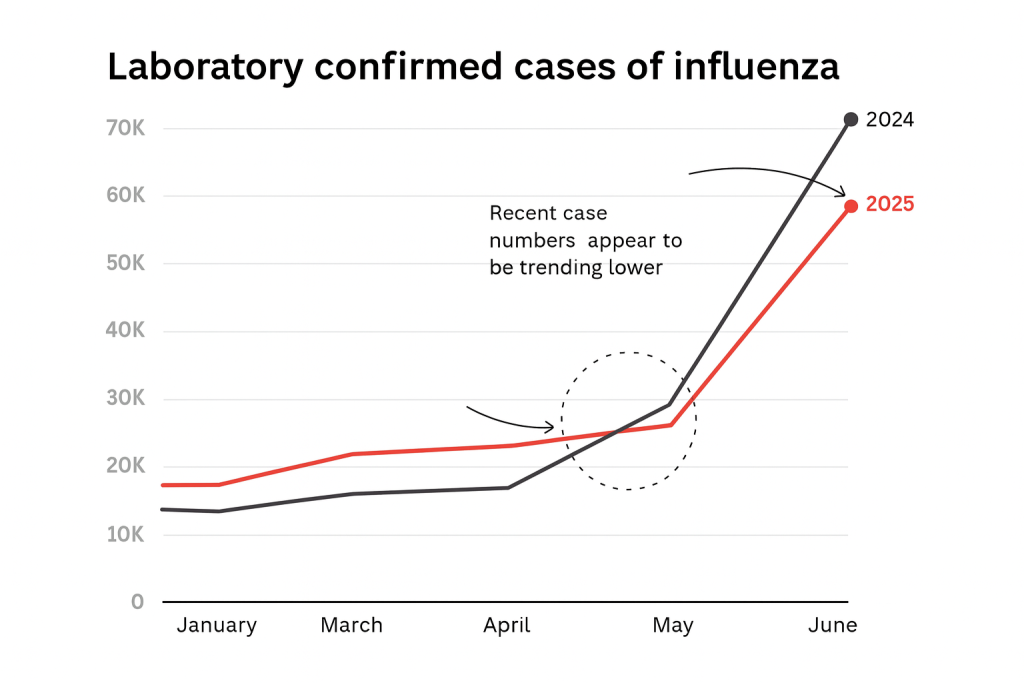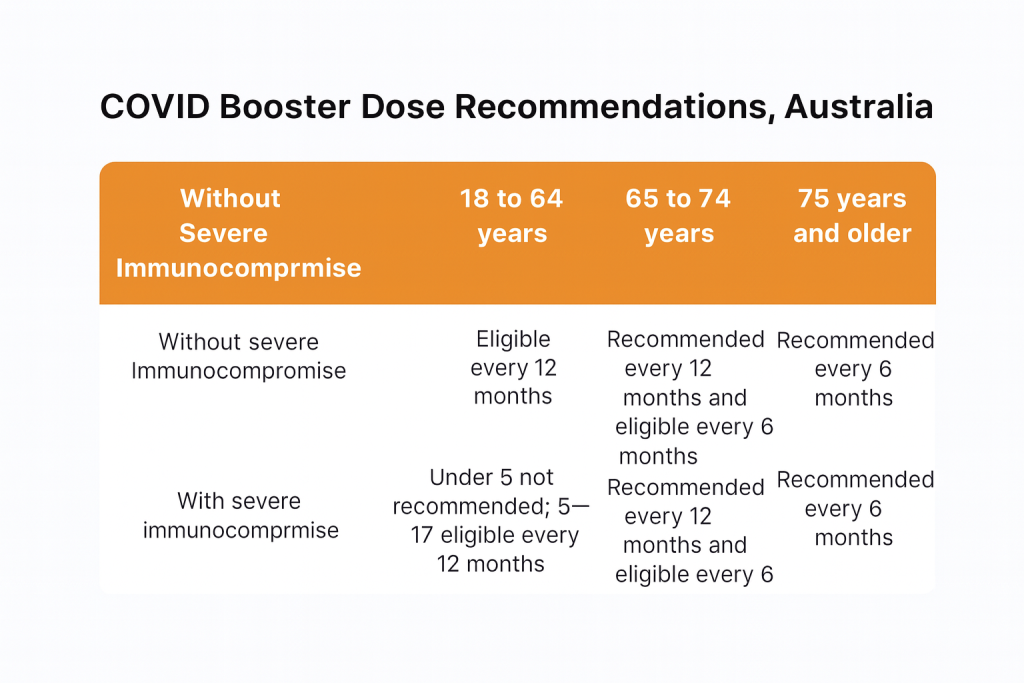As the chill of winter sets in, cases of respiratory infections are spiking across Australia. Symptoms like sore throats, runny noses, lingering coughs, and fevers are increasingly common, and hospitals along with aged care facilities are under mounting strain.
Hospitals Feeling the Strain
In recent weeks, several hospitals in Queensland have had to delay or cancel elective surgeries because of surges in influenza and COVID-19 patients. Meanwhile, outbreaks of COVID-19 have been documented in more than 200 aged care homes nationwide.
What Viruses Are in Circulation?
COVID-19
- In June, nearly 32,350 COVID cases were recorded, closing in on last year’s June total of 45,634.
- True numbers may be higher, given reduced testing compared to earlier in the pandemic.
- The main driver of the current wave is the NB.1.8.1 (“Nimbus”) variant, which descends from JN.1.
- Symptoms often mirror a cold but can include intense sore throats, nausea, and diarrhea.
- Older individuals and those with preexisting conditions remain at higher risk of complications.
- Vaccines targeting JN.1 are available and provide protection against Nimbus and related strains like “Stratus” (XFG).
- Boosters are widely encouraged; for those 75 and older, semi-annual vaccines may be advisable.
- Antiviral treatments are being offered to people aged 70+ and to younger high-risk individuals who test positive.
Influenza (Flu)

- The 2025 flu season is particularly severe, with reported cases between January and May up about 30% over the same period last year.
- Key symptoms include high fevers, body aches, profound fatigue, sore throat, and congestion.
- The most vulnerable groups are the elderly, young children, and pregnant people.
- Vaccination is free for children aged 6 months to 4 years, people aged 65 and over, pregnant individuals, and other high-risk groups.
- In Queensland and Western Australia, flu shots are free for everyone aged 6 months and up. In other states, a fee (up to A$30) may apply.
RSV (Respiratory Syncytial Virus)
- RSV has only been officially tracked since 2021, making cross-year comparisons challenging.
- June 2025 saw 27,243 reported cases—roughly in line with the figure for June 2024.
- While symptoms mimic a cold, RSV can escalate into bronchiolitis or pneumonia.
- Babies, older adults, and those with chronic illnesses are most at risk.
- Preventive measures include a free vaccine for pregnant women (to protect infants up to six months) and monoclonal antibody injections for high-risk children under age two.
- Adults aged 75+ and others at risk (60+, Indigenous populations) have access to two recommended RSV vaccines (retail cost ~A$300; not yet subsidised). Protection is expected to last at least three years.
The Common Cold
- Over 200 virus types can cause the typical “common cold” — chiefly rhinoviruses and some coronaviruses.
- Symptoms include sneezing, congestion, sore throat, mild fever, and fatigue.
- Children tend to catch 6–8 colds per year; adults average around 2–4.
- Treatment is symptomatic: rest, fluids, over-the-counter relief. Because of the viral diversity, a universal cold vaccine is not yet feasible.
Steps to Protect Yourself and Others
Even mild viral infections can contribute to healthcare system overload. Consider these safeguards:
- Practice good hygiene (handwashing, sanitiser).
- Cover coughs and teach children to do the same.
- If you’re in a higher-risk group, wear a quality mask.
- Stay home when you’re unwell.
- Use multiplex “panel tests” that detect flu A/B, COVID-19, and RSV when symptoms arise.
Telehealth services make it easier to consult a physician without leaving home. In some cases, doctors can issue medical certificate online and instant scripts remotely.




